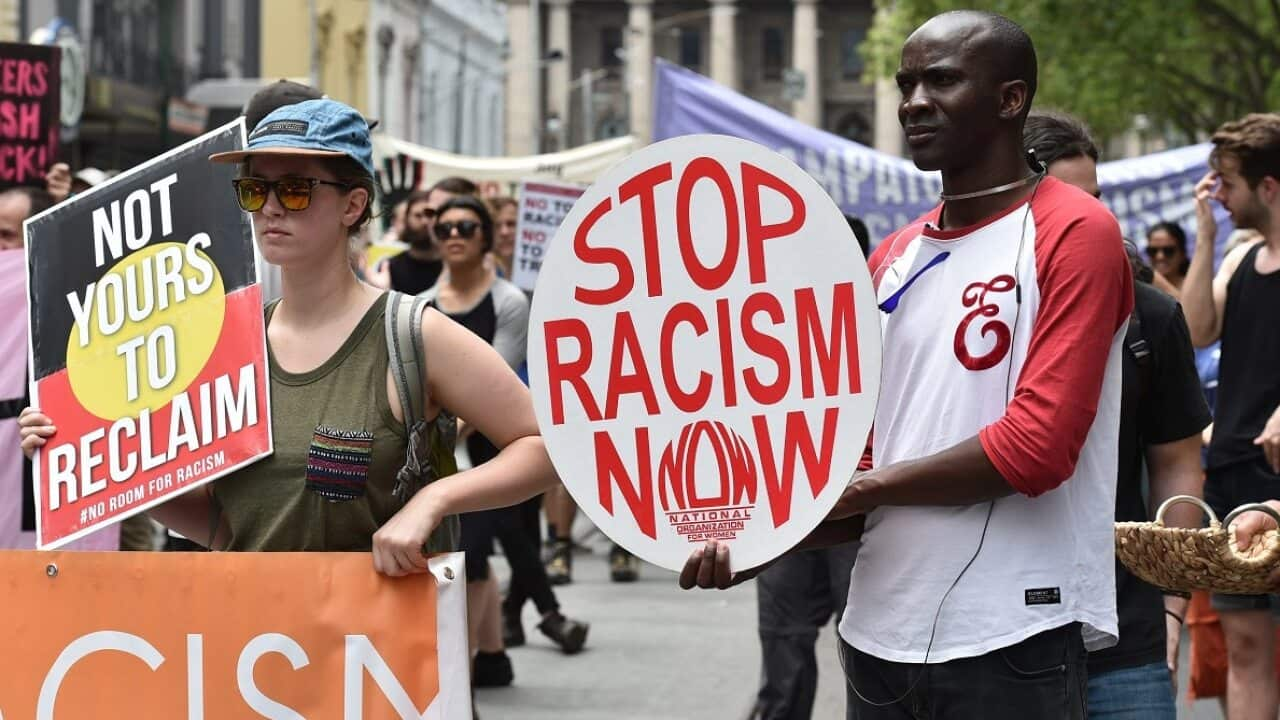OPINION
Mt Druitt is the place art goes to die. Or so I thought growing up as an aspiring writer from The Area. I didn’t see my identity, as a mixed-race Tongan woman from ‘Mounty County’ in any music, film, books and television shows. The representations I did see were negative portrayals on mainstream media of Pasifika-Australians and Mt Druitt residents as and . It wasn’t until I was in my early 20s that I finally saw what mainstream representation by Pasifika people from my suburb could look like.
OneFour is Australia’s first and biggest all-Pasifika drill rap crew from Mt Druitt. Their most popular song, 'The Message', contains lyrics such as: “When I met them streets and slapped that thing, lad I knew I found my obsession. Had me running the ball no question. Swear any opp I saw I pressed him.”
and: “Retaliation is a must, ain’t no maybe, ifs or buts. We took numerous trips round there but lad that something I can’t discuss (No way). I don’t wanna end up in cuffs (Ugh). We heartless wrong or right regardless yeah I'ma back my blood.”
The music video for 'The Message' is filled with scenes of young men of colour from western Sydney throwing up gang and gun signs in balaclavas in the backstreets of Mt Druitt.
The music video for 'The Message' is filled with scenes of young men of colour from western Sydney throwing up gang and gun signs in balaclavas in the backstreets of Mt Druitt.
in 2019, OneFour have amassed millions of views, listeners and international recognition with their dark, violent, nihilistic and lyrical Western Sydney slang – a 2770 tribute to the history of south-side Chicago and UK style drill rap. I remember watching ' with my two brothers and five sisters a couple of months ago in our lounge room. We all yelled, ‘Ayyyyyeee!’ as we saw OneFour with their boys jumping in front of Mt Druitt Courthouse, Mt Druitt Station and Dawson’s Mall behind the Mt Druitt Westfields whilst waving bright orange smoke flares. Places we all visited on the daily were now on the map. We were proud.
My sister threw up the OneFour gang sign. Her brown left hand showed four fingers with the thumb hidden behind the palm and her brown right hand stuck up the middle finger. ‘Me and my girls been doing it all day,’ she said with a smirk. She stood straighter than I’ve ever seen her. My brother scoffed at her whilst sitting on the couch in his dri-fit Gucci cap, Nike trackies and neon white TNs. ‘Don’t be actin’ all hard coz of them.’ My brother, who looks exactly like a OneFour member himself, continued, ‘Yeah those boys might be hard but they still actin’ hard.’
My brother had touched on something that seems to be missing from all the dialogue, support and even critique of OneFour: they are a performance. In his essay, ', Arab-Australian author, Michael Mohammed Ahmad writes extensively about the performative violence and hypersexuality of the young Leb boys he grew up around in South-West Sydney. In particular, Ahmad writes about a photograph on the front page of The Daily Telegraph in 1998 in which the boys in his community had pretended to be violent gangsters, which journalists took seriously. In the context of ongoing negative media attention against Arab and Muslim communities in Australia, Ahmad continues that The Daily Telegraph article is a prime example of performative masculinity: youthful masculine language and behaviour that comes from a place of “frustration and a sense of ‘injury’ and ‘defensiveness’ due to experiences of racism and marginalisation.”
Put simply, young men from minorities perform the ‘gangsta’ because it is empowering to scare racist white people.
Put simply, young men from minorities perform the ‘gangsta’ because it is empowering to scare racist white people.
Performative masculinity comes from the wound of racism and marginalisation. This wound is at the centre of OneFour’s small but growing discography. OneFour even reveal to their viewers the true nature of their work in a disclaimer before ': “This video is made for entertainment purposes only. The lyrics and characters of this song are fictional and should not be taken literally.” So even while OneFour members Spenny, Lekks, YP and JM rap about stabbing, shanking and stomping heads, I can’t help but laugh. These boys remind me of my own brothers and cousins, who talk all night about running up the houses of bogan white men that owe them money but who end up decking themselves out in Adidas tracksuits to go out to a Drake concert instead.
It is important to understand that OneFour are artists who make art in direct response to racism and marginalisation. The literal interpretation of their work has serious consequences on young Pasifika men. Recently, OneFour have claimed that NSW police have shut down every potential show in Sydney, citing their music as a call to gang violence and knife crime. NSW police even have of 20 detectives, known as Strike Force Imbara, who were looking into even though to suggest that NSW is facing a knife crime epidemic.
“They want us to get off the street, yet they won’t give us a chance to,” OneFour wrote in a . As a Tongan-Australian writer from Mt Druitt who has been able to transform my own life through the art of storytelling, I fully appreciate the nuance and complexity of this statement – OneFour’s art has empowered the young men in my culture and community to make their own paths.
And I am with OneFour when they say, “Retaliation is a must, ain’t no maybe, ifs or buts.”
Winnie Dunn is a Tongan-Australian from Mount Druitt. She is a Manager and Editor at Sweatshop: Western Sydney Literacy Movement and a Bachelor of Arts graduate from Western Sydney University.




